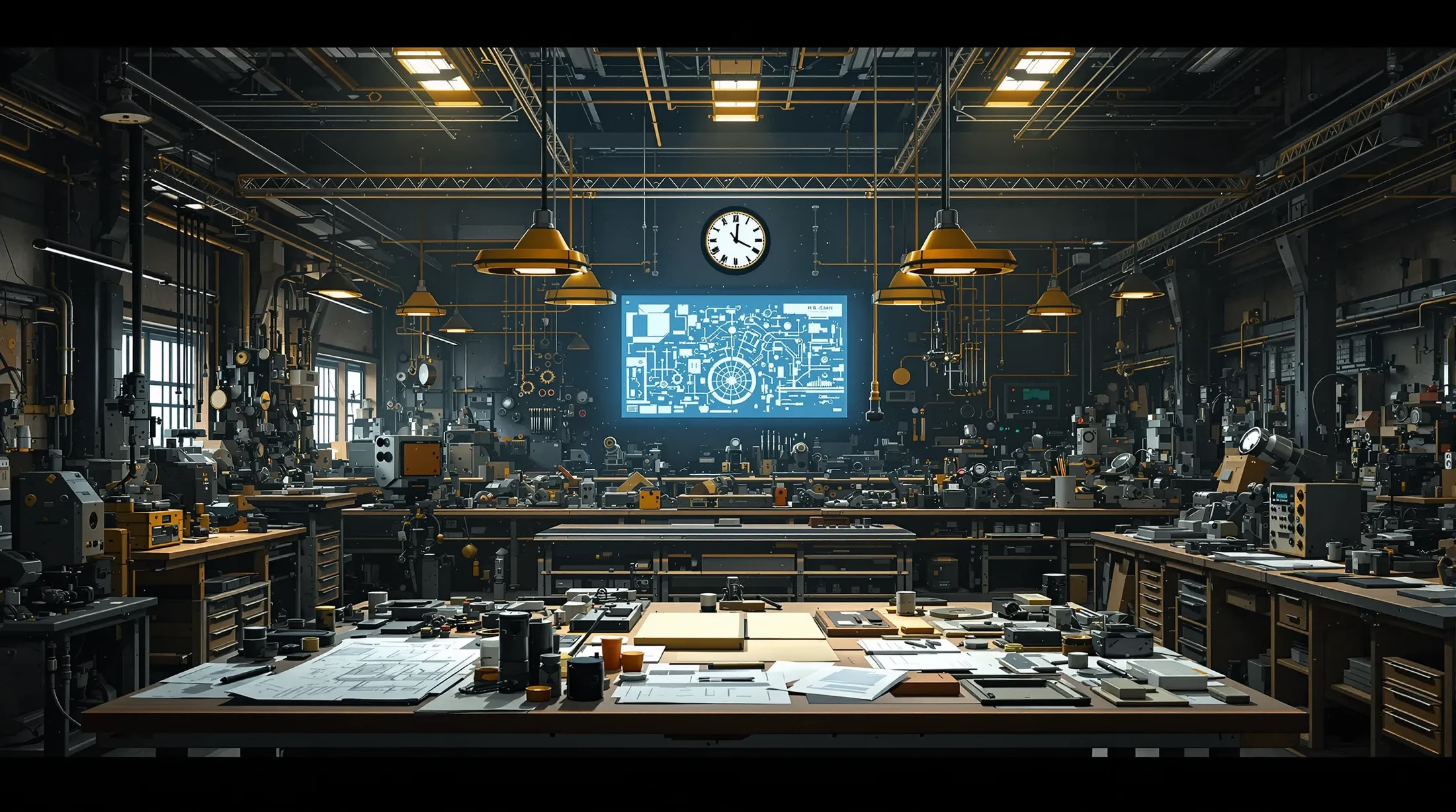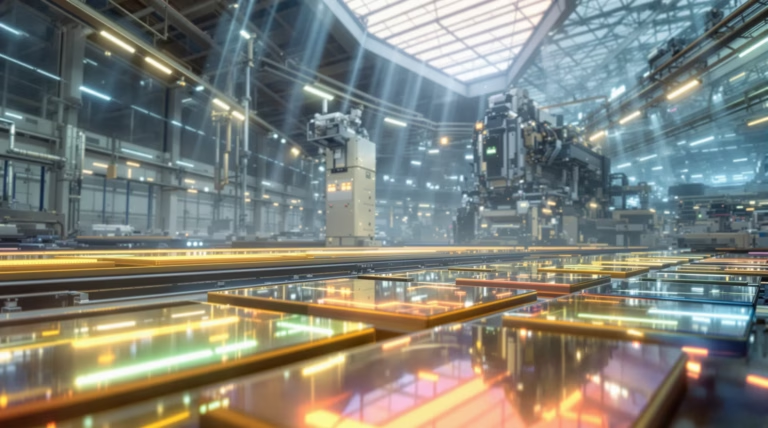Job Shop Manufacturing: A Comprehensive Guide to Understanding Its Benefits
Discover how job shop manufacturing revolutionizes custom production processes, enabling businesses to create highly specialized products with unparalleled precision and flexibility. Let’s explore the key aspects of this versatile manufacturing approach and understand why it’s becoming increasingly vital in today’s dynamic industrial landscape.
Understanding Job Shop Manufacturing
Job shop manufacturing represents a specialized production process focused on creating small batches of custom, made-to-order products. Unlike mass production facilities, these adaptable environments excel at handling diverse customer requirements and producing unique items in limited quantities. This manufacturing approach particularly serves businesses requiring specialty components or products with precise specifications.
Operating on a high-mix, low-volume production model, job shops combine versatile equipment with skilled labor to meet varied manufacturing needs. The production environment organizes around individual jobs rather than continuous product lines, enabling efficient project transitions.
Key Characteristics of Job Shop Manufacturing
- Exceptional flexibility in production setup and configuration
- Customizable design capabilities for exact customer specifications
- Highly skilled workforce with multi-disciplinary expertise
- Small production runs (single units to several hundred)
- Diverse equipment capability with general-purpose machines
- Project-based workflow organization
How Job Shop Manufacturing Works
The manufacturing process follows a structured workflow:
- Customer submits product specifications
- Job shop evaluates requirements
- Development of production plan
- Job scheduling based on priority and resources
- Production across functional workstations
Production organizes around functional workstations equipped with versatile machinery capable of various operations. Items move between stations according to unique production needs, sometimes returning to the same station for different operations.
Benefits of Job Shop Manufacturing
Job shop manufacturing delivers several competitive advantages:
- Exceptional flexibility in handling diverse products
- Quick adaptation to changing specifications
- Efficient small-batch production capability
- Enhanced innovation through unique engineering challenges
- Stronger customer relationships through direct collaboration
Customization and Customer Involvement
| Customization Aspect | Benefits |
|---|---|
| Product Specifications | Precise dimensions, material selection, specialized performance features |
| Customer Involvement | Direct input throughout production, prototype review, modification requests |
| Communication | Quick adjustments, continuous feedback, higher satisfaction rates |
Efficiency and Resource Utilization
Job shop manufacturing excels at optimizing resource utilization through its project-focused approach. The versatile equipment and skilled personnel can quickly shift between different projects, unlike dedicated production lines that may remain idle between similar orders. This flexibility enables maximum utilization of both machinery and human resources, as production assets are continuously deployed across various jobs based on scheduling priorities. The ability to reconfigure workstations for different operations ensures equipment investments deliver greater returns through multi-purpose application.
- Just-in-time workflow implementation minimizes inventory costs
- Materials ordered and processed specifically for each job
- Reduced storage costs and obsolescence risk
- Targeted resource allocation based on immediate needs
- Skilled craftspeople focus on specialized projects
Challenges in Job Shop Manufacturing
Job shop manufacturing, while offering exceptional flexibility and customization capabilities, faces distinct operational challenges. Unlike standardized mass production environments, job shops must navigate the complexity of managing diverse, constantly changing production requirements. This variability creates significant operational hurdles affecting efficiency, costs, and delivery timelines.
| Challenge Area | Impact |
|---|---|
| Resource Planning | Fluctuating demand patterns, complex capacity planning |
| Production Costs | Higher per-unit costs, limited economies of scale |
| Operational Efficiency | Resource underutilization, production bottlenecks |
Managing Scheduling and Lead Times
Scheduling in job shop environments presents unique complexities, requiring coordination of multiple projects with different specifications moving through workstations in unique sequences. This often results in scheduling conflicts, resource allocation challenges, and difficulty in predicting completion times accurately. Delays in one project can create a ripple effect, disrupting the entire production schedule.
- Extended lead times due to individual planning requirements
- Setup adjustments and tool modifications for each order
- Impact of rush orders on existing schedules
- Need for real-time tracking capabilities
- Implementation of buffer times for unexpected issues
Addressing Production Costs
The financial dynamics of job shop manufacturing create unique challenges compared to mass production operations. Production costs per unit typically run higher due to extensive setup times, specialized material requirements, and intensive skilled labor needs. These factors create a cost structure where achieving economies of scale becomes particularly challenging.
- Strategic workflow optimization techniques
- Standardization of common production elements
- Grouping similar jobs to reduce setup times
- Investment in versatile, multi-purpose equipment
- Cross-training employees for improved workforce utilization
- Detailed job costing systems for accurate pricing
Tools and Technologies in Job Shop Manufacturing
Modern job shop manufacturing leverages specialized tools and technologies to manage custom production complexity. Digital integration has transformed traditional job shops into agile, responsive facilities capable of meeting demanding customer requirements while maintaining competitive pricing. These technological solutions enhance flexibility without sacrificing efficiency, enabling job shops to overcome traditional challenges in scheduling, cost management, and production visibility.
Role of ERP Systems
Enterprise Resource Planning (ERP) systems function as the central nervous system for modern job shops, integrating diverse operational aspects into a unified management platform. These comprehensive solutions create a seamless connection between various business functions, enabling real-time visibility and informed decision-making.
- Production scheduling with dynamic adjustments
- Inventory tracking and management
- Customer relationship management integration
- Financial monitoring and reporting
- Supply chain coordination
- Real-time bottleneck identification
Industry-specific solutions like Katana and Deskera deliver specialized functionality tailored for job shop environments. Through IoT connections, these platforms create a digital thread linking customer specifications directly to production activities, enabling real-time progress tracking and automated adjustments to production schedules.
Supply Chain and Workflow Optimization
| Technology Focus | Benefits |
|---|---|
| Digital Supplier Collaboration | Enhanced communication, streamlined procurement |
| Predictive Analytics | Optimized inventory levels, precise material timing |
| Real-time Dashboards | Immediate production status, proactive bottleneck prevention |
| Workflow Intelligence | Optimal routing paths, improved resource utilization |
Comparing Job Shop and Other Manufacturing Processes
Job shop manufacturing distinguishes itself through its emphasis on customization and small-batch production, contrasting sharply with mass production methodologies. This fundamental difference shapes everything from equipment selection to workforce development, creating an environment optimized for flexibility rather than standardization.
- Focus on diverse product specifications
- Investment in versatile equipment
- Employment of multi-skilled workers
- Adaptable production processes
- Emphasis on precision and customization
Distinct Operational Focuses
| Aspect | Job Shop Manufacturing | Mass Production |
|---|---|---|
| Facility Organization | Functional departments with flexible routing | Sequential production lines |
| Equipment | Versatile, multi-purpose machinery | Specialized, fixed equipment |
| Workforce | Highly skilled craftspeople | Task-specific operators |
| Production Focus | Customization and flexibility | Standardization and volume |







